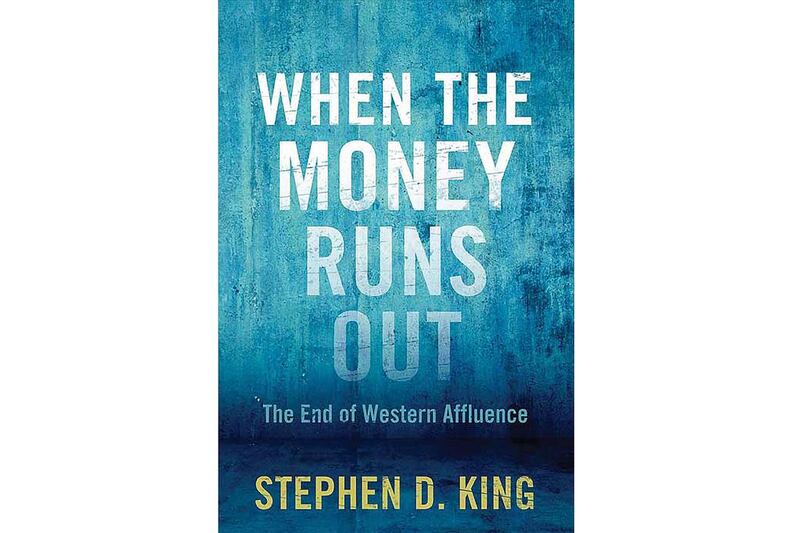It’s a fear that has gripped many westerners in recent years: when I retire how will I be able to support myself and my family?
The concern has become more pressing since the global financial meltdown.
The new era has been characterised by faltering economic growth and governments fretting about the need to cut ballooned budget deficits. Throw in the sluggish performance of financial markets and questions quickly emerge about where the money will come from to fill pension pots and funds for other social welfare measures.
Against such an uncertain backdrop, the timing of Stephen D King’s When the Money Runs Out should guarantee it a captive audience.
He duly delivers a sobering assessment of the West’s future outlook.
“We have made promises to ourselves that are only achievable through ongoing economic expansion,” he writes.
“The future benefits we expect – pensions, health care and social security, for example – may be larger than tomorrow’s resources.”
Drawing on parallels with some of the global economy’s basket cases, King’s conclusions are likely to make readers feel distinctly queasy.
Not only does he warn the West is submerged in Japanese-style stagnation, but he argues it may also be suffering the same spectacular fall from grace that beset Argentina’s economy in the 20th century.
It all means, argues King, that westerners will have to adjust to a new reality distinguished by lower living standards than that enjoyed by recent generations.
He notes the quick fixes with which governments are attempting to solve the problem are not working. Monetary stimulus used by the US Federal Reserve and others had been successful only in bloating government debt further, while failing to deliver an economic lift.
Instead, King says a mixture of other measures is needed. Changes to monetary policy, greater labour mobility, stronger regulation for banks and more financial literacy for investors are among his suggestions.
But ultimately all this will require a sea change in government policymaking, something given the wrangling in Washington, Brussels and London in recent years is not guaranteed.
Readers finishing King’s book may, therefore, be left feeling even more anxious about their retirement plans.
tarnold@thenational.ae





